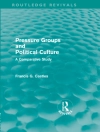The original publication of the
May Day Manifesto in 1967 collected together the most influential radical voices of the era. Among the seventy signatories were Raymond Williams, E. P. Thompson, Stuart Hall, Iris Murdoch, Terry Eagleton, Ralph Miliband and R. D. Laing. The manifesto set out a new agenda for socialist Britain, in the aftermath of the failure of postwar labours.
Urgently relevant to the current arguments about the crisis of austerity, the burden of empire and the failures to control rampant capitalism, it offers a complete road map to a brighter future. Covering the purpose of the state and how finance and empire are twinned, the importance of a planned economy for all, the role of Britain in the world, the manifesto hoped to inspire change and a fairer society. It is a bold reminder that there are alternatives to the current situation, and that alternative policies can make a difference.
About the author
Raymond Williams (1921-1988) was for many years Professor of Drama at the University of Cambridge. Among his many books are Culture and Society, Culture and Materialism, Politics and Letters, Problems in Materialism and Culture, and several novels.












